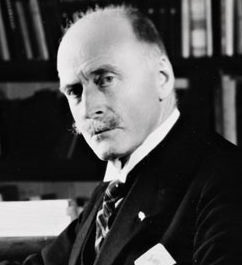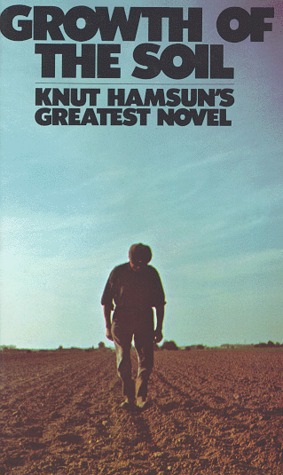 Awarded the Nobel Prize in Literature in 1920 “for his monumental work, Growth of the Soil”. He insisted that the intricacies of the human mind ought to be the main object of modern literature, to describe the “whisper of the blood, and the pleading of the bone marrow”. Hamsun pursued his literary program, debuting in 1890 with the psychological novel Hunger.
Awarded the Nobel Prize in Literature in 1920 “for his monumental work, Growth of the Soil”. He insisted that the intricacies of the human mind ought to be the main object of modern literature, to describe the “whisper of the blood, and the pleading of the bone marrow”. Hamsun pursued his literary program, debuting in 1890 with the psychological novel Hunger.
Books

Growth of the Soil
A grand, sweeping saga of sacrifice and struggle, this epic tale recaptures the world of Norwegian homesteaders at the turn of the 20th century. It created an international sensation upon publication and led to the author’s 1920 Nobel Prize in Literature. Rich in symbolism, it continues to resonate with modern readers.

Pan
A lone hunter accompanied only by his faithful dog, Aesop, Thomas Glahn roams Norway’s northernmost wilds. Living out of a rude hut at the edge of a vast forest, Glahn pursues his solitary existence, hunting and fishing, until the strange girl Edvarda comes into his life.
In his 1894 breakthrough novel, Pan, Knut Hamsun provides a lyrical, yet disturbing analysis of love and the dark recesses of the human psyche. Sverre Lyngstad’s superb new translation restores the power and virtuosity of Hamsun’s original and includes an illuminating introduction and explanatory notes.

Hunger
One of the most important and controversial writers of the 20th century, Knut Hamsun made literary history with the publication in 1890 of this powerful, autobiographical novel recounting the abject poverty, hunger and despair of a young writer struggling to achieve self-discovery and its ultimate artistic expression. The book brilliantly probes the psychodynamics of alienation and obsession, painting an unforgettable portrait of a man driven by forces beyond his control to the edge of self-destruction. Hamsun influenced many of the major 20th-century writers who followed him, including Kafka, Joyce and Henry Miller. Required reading in world literature courses, the highly influential, landmark novel will also find a wide audience among lovers of books that probe the “unexplored crannies in the human soul” .
Love is every bit as violent and dangerous as murder.
I suffered no pain, my hunger had taken the edge off; instead I felt pleasantly empty, untouched by everything around me and happy to be unseen by all. I put my legs up on the bench and leaned back, the best way to feel the true well-being of seclusion. There wasn’t a cloud in my mind, nor did I feel any discomfort, and I hadn’t a single unfulfilled desire or craving as far as my thought could reach. I lay with open eyes in a state of utter absence from myself and felt deliciously out of it.
Truth is neither ojectivity nor the balanced view; truth is a selfless subjectivity.
I love three things,” I then say. “I love a dream of love I once had, I love you, and I love this patch of earth.”
“And which do you love best?”
“The dream.
…I will exile my thoughts if they think of you again, and I will rip my lips out if they say your name once more. Now if you do exist, I will tell you my final word in life or in death, I tell you goodbye.

